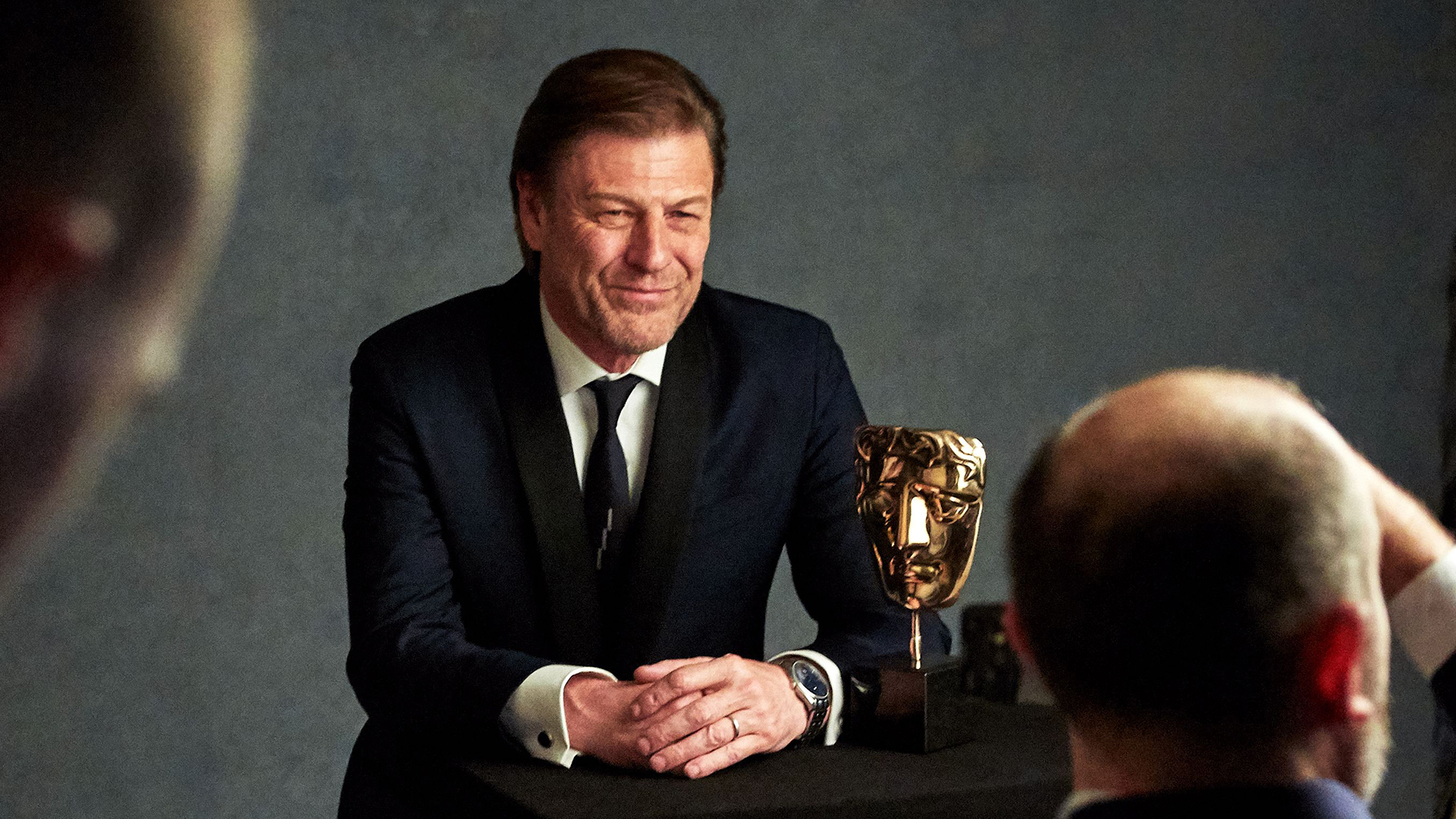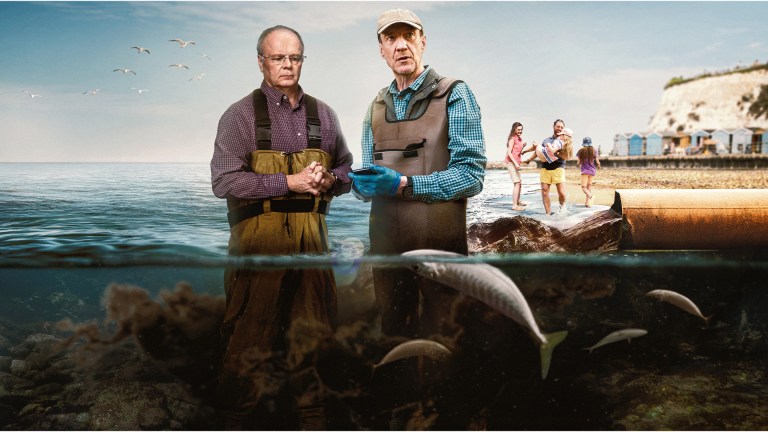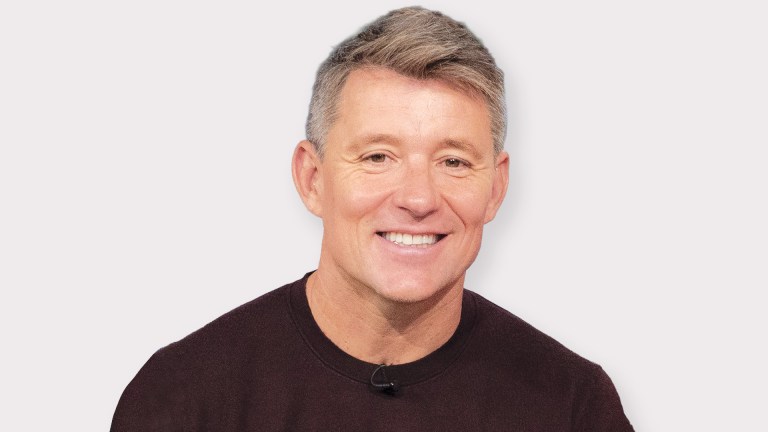“The characters I am offered now are quite reflective, and often disturbed by memories of the past,” he says. “It is great because I have more life to bring to it. I get offered the parts of grandads and think, ‘Oh, yeah, fuck, I’m 60 – I’m not the young man who gets all the girls.’”
A career of this longevity and breadth was beyond Bean’s wildest dreams when he started his acting journey.
“I wouldn’t have believed it when I was at drama school, living in a YMCA in London. No way,” he grins. “I was just looking to get a first job on stage and get a wage packet. Which I did. And it was 80 quid for Romeo and Juliet so I got my Equity card. These days you can skip all that learning and be a celebrity.”
Large parts of the series are set in Warsaw or Berlin. It is not just the English view of the war. And it is not glorifying war
Bean is outstanding, once again, in World On Fire. The stunning new BBC One Sunday night drama is written by Bafta-winner Peter Bowker (The A Word, Marvellous) and succeeds in the seemingly impossible task of finding a new way to tell the story of the Second World War on screen.
This is not another depiction of Winston Churchill and Hitler’s speeches, Spitfires duelling, Vera Lynn and the spirit of the Blitz. We know that history and have seen it countless times.
Advertising helps fund Big Issue’s mission to end poverty
Instead, World On Fire takes its influence from The World At War, the groundbreaking 26-part documentary narrated by Laurence Olivier in the early 1970s, but also from the success of The Killing, which showed audiences were ready for subtitled drama. The series focuses on people across Europe whose lives were irrevocably affected by this global conflict, with an ambition to run for seven series, each telling the story of one year from 1939-1945.
“Large parts of the series are set in Warsaw or Berlin. It is not just the English view of the war. And it is not glorifying war,” says Bean.
“It is very intimate. These are ordinary people like you or me and it shows how the war affects their lives – which is vastly. And forever. For their children and for us now.”
Bean plays bus conductor Douglas Bennett, who survived a mustard gas attack in the First World War, but suffers from what we’d now call PTSD and now actively campaigns against a fresh conflict.
Spoiler alert: Bean will be sticking around. He is, he suggests, fed up of his characters dying early in far too many roles, notably Game of Thrones, and a stellar acting career in danger of being reduced to a meme.
Advertising helps fund Big Issue’s mission to end poverty
“Did I ask whether I would survive? I did call Peter Bowker,” he grins. (The writer confirms this: “One of the things that swung it for him is that he wanted to make sure he didn’t die.”).
“I wanted him to be relevant throughout the whole series so I could see him develop.”
Bean talks with admiration about his latest alter ego.
“He is a pacifist now. He is suffering quite deeply with memory loss, tremors, flashbacks. And that, of course, influences his feelings towards this war. But he is a very warm personality, very warm with his children.
“He is not going to make many friends being a conscientious objector. But he is brave. He is not afraid to walk into a recruitment office with copies of Peace News, saying he thinks there is an alternative to war. He just doesn’t think war is the solution to the world’s conflicts.”
Neither, it seems, does the actor playing him.
Advertising helps fund Big Issue’s mission to end poverty
“There are alternatives,” says Bean, warming to his theme. “I don’t like that gung-ho attitude to war. Diplomacy and dialogue are good things to try and re-establish.
“There is so much abuse being hurled around by big countries and the top men of those countries. It is like a game to them. All these tweets going backwards and forwards, and most of them were war-dodgers, the Bushes and Trump. They’re quite happy to promote war now.
“Look at Iraq and Afghanistan. What a huge loss of life for something that was so futile. Those countries are worse now than they were before.
“So Douglas has a very modern viewpoint that I think many people can understand. People now see it is a catalyst for more war, which is probably intentional. Perpetual war was mentioned in George Orwell’s 1984 as a tool to keep the population under control and create a war machine. Which is pretty much what the US military industrial complex is – many people have become billionaires from exactly that.”
Bean’s parents were children during the Second World War. He recalls stories of gas masks being grabbed when air raids targeted the local steelworks.
“My uncle still has an Anderson shelter in his little garden,” he says. “We used to play in it as kids. It was a good den, that. And there were still bomb craters around Sheffield when I was a kid. We used to have fights in them after school.”
Advertising helps fund Big Issue’s mission to end poverty
He also invokes the local steelworks when talk turns to his own big issues. Bean moves rapidly through a series of interlinked subjects – from the rising levels of poverty and increased use of foodbanks to homelessness and fractured communities.
“It is about communities. You can go back to the miners’ strike. They shut down the mines in Sheffield and South Yorkshire, there is the closing down of the steelworks and the shipbuilding industry,” says Bean.
“All these villages are ghost towns now, riddled with drugs and unemployment. They are forgotten. The communities and all that belief they had in themselves has never been replaced. Libraries have disappeared. Youth clubs have disappeared. All those places the government don’t seem to think are relevant because they don’t provide profit, I guess. It is not right.
“Then there are the conditions in prisons – absolutely tragic. They are awful. They are medieval. There is no rehabilitation to speak of – prisoners then end up homeless. I know a few people back home in Sheffield. It is a vicious circle. They talk about longer sentences and more prisons but they are not addressing how to educate and rehabilitate people. It is just paying lip service and it is a load of shit.”
An extraordinary amount of people are living under the breadline. They are starving. But it doesn’t make headlines. We have to get to the bottom of it, instead of these token gestures
He is on a roll now, more impassioned, more fluent, more like the charismatic characters we have seen him inhabit than the sensitive, softly spoken actor he has appeared as thus far.
“The cutbacks in disability benefits – you can go on and on,” says Bean, eventually. “But when you see poverty levels going up and the use of foodbanks going up, it is awful. The levels of children living in poverty is rising significantly. It is so alarming in a society that likes to present this image of wealth and wellbeing that so many people are struggling.
Advertising helps fund Big Issue’s mission to end poverty
“An extraordinary amount of people are living under the breadline. They are starving. But it doesn’t make headlines. We have to get to the bottom of it, instead of these token gestures.
“But you guys do a great job and highlight it and have a fantastic reputation. I remember when you first came out. I am really honoured you asked me to be part of it.”
World on Fire airs on BBC One on Sunday nights
Image: Jonny Birch/BAFTA/Shutterstock









